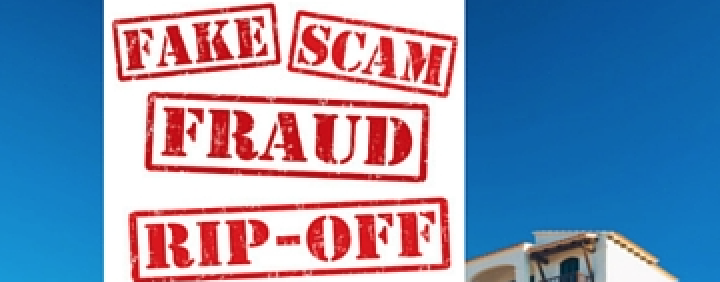Holiday club fraud is when you are told you’ve won a ‘free’ holiday or are pressured into signing a contract for a holiday club. Both can be scams for a bogus holiday club.
You’re offered a free holiday and, to claim your prize, all you need to do is attend a presentation (usually at a plush hotel) to learn more about a new holiday venture.
You’re often told that you have to stay until the end of the presentation, which is often deliberately long and you may also be offered free champagne or other alcohol.
The brochures will look glossy and convincing and you’ll be made to feel as if you’re joining an exclusive holiday club offering top-class accommodation all over the world.
Although the presentation and brochure are persuasive, you later discover that your ‘free’ holiday isn’t free. Instead, you will be asked to pay for flights and other add-ons.
You’ll also be asked to sign a contract at the end of the presentation. If you’ve been there for a long time and have drunk alcohol, you may not think it through properly.
What the bogus holiday club says in its sales pitch and what the contract stipulates could be very different.
When you wish to book holidays, you may also discover that destinations are neither guaranteed, nor available when you want them.
Are you a victim of holiday club fraud?
Someone has phoned you up out of the blue and told you that you’ve won a ‘free’ holiday.
You’ve been approached in the street while you’re away on holiday and been given a scratch card, which also reveals you’ve won a ‘free’ holiday.
You’ve attended a presentation to claim your holiday and been pressured into signing a contract for a bogus holiday club.
What should you do if you’re a victim of holiday club fraud?
Report it to Action Fraud.
You may also wish to report the scam to the Office of Fair Trading.
Protect yourself against holiday club fraud
Be very wary of letters, phone calls or emails from companies you don’t know offering you free holidays out of the blue.
If you are contacted by phone, don't continue the conversation.
Always remember: if something sounds too good to be true, it almost certainly is.
If you attend the presentation, you can leave at any time – even though the sales staff might try and persuade you to stay.
Read the small print on the contract. If it’s not what you were promised, challenge it or don’t sign it.
Never feel pressured into signing the contract. Ask if you can take it away and sign it later. If the company is reputable, it will allow you to do so.
Make sure you get all verbal promises in writing.
Ask about your cancellation rights and get them in writing as well.
Unfortunately, under the laws governing holiday clubs, you don’t have the legal right to cancel if you change your mind. A lawyer might be able to help you reclaim your
money, but no official body can. This is another reason why you shouldn’t sign on the day.
If fraud has been committed, report it to Action Fraud.


